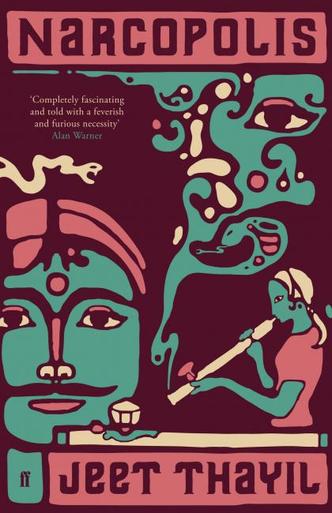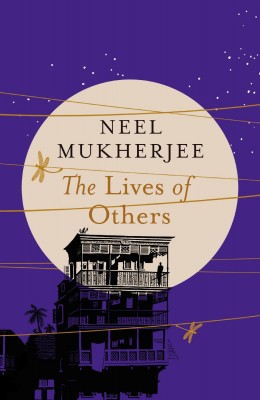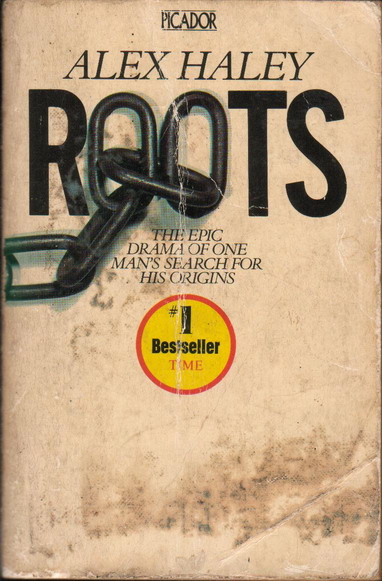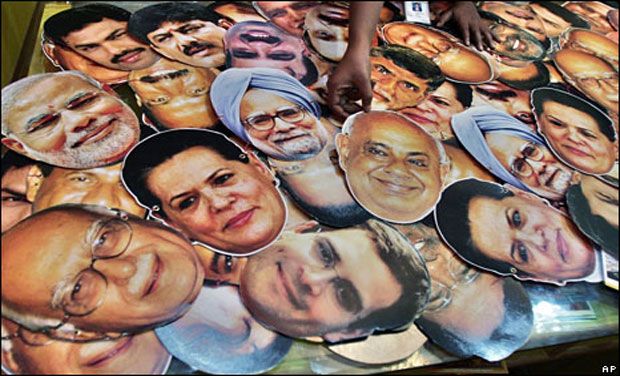|
If Only They Could Talk
It Shouldn’t Happen To A Vet Let Sleeping Vets Lie Vet In Harness Vets Might Fly Vets In A Spin I read the above works by James Herriot for the first time almost twenty years ago, and I’ve reread them countless times since then. It’s hard to find a writer this lovable. As you probably guessed from the titles, James was a veterinary surgeon in the 1930s in Yorkshire, England. His compassion, love and sense of humor are obvious in his writings, both towards his patients as well as their owners. His opening chapter describes his struggle to deliver a calf in the middle of the night, while the farmer has little faith in him, as he is a young, inexperienced vet. The book has countless such anecdotes from angry bulls to delightful kittens and cheeky parrots. One of the most interesting segments is about Tricki Woo, a pampered Pekinese dog belonging to a rich old lady. Equal importance is given to the farmers, their crusty exterior hiding some of the most generous and wonderful people one could meet. And of course there is the love of his life, Helen, but I won’t say more. Early in the book James joins the veterinary practices of Siegfried, one of the most interesting and entertaining characters you can meet in literature. One can only wish such hilarious and understanding bosses existed in real life too. James was certainly lucky to have one. And even more entertaining is Siegfried’s younger brother Tristan, a fun-loving veterinary student who waltzes in and out of the house and the books, adding more hilarity. But it is not all laughs. There are many moments when this writing can bring tears to your eyes, especially when a beloved animal passes away or has to be put down. In the last three books James and Siegfried are enlisted in the Royal Air Force (RAF) to serve in WWI. He weaves those tales in and out of the ones of his old life as a vet with mastery. This is a large volume of writing, but it never gets boring because his insight into human and animal nature is profound. These books are so vivid and enriching, they leave you feeling that you lived in his world. James Herriot takes you right into the lives and hearts of the people he knew, and makes you feel as if you know them too. PS: Sorry for the lousy picture but it's the only one of the edition I own that I could find online.
3 Comments
Author: Jeet Thayil
Genre: Fiction Keywords: Evocative. Offbeat. Authentic. Narcopolis takes you deep into the heart of another world. Welcome to the opium dens of 1970s Bombay, with their seedy little rooms, gritty alleys and notorious inhabitants. There are just a few main characters: a eunuch, a dealer, a Chinese officer, but each is endlessly fascinating. The overall mood of the book is dark, of course, but not as dark as one would expect. The writing style is riveting and intoxicating. Not many writers can write a first chapter that is one continuous paragraph, and yet not have the reader feel the strain of reading it. The writer touches upon the struggle to free oneself from addiction, and shows human nature with all its flaws. The drug world has not been glamourized (as it typically is in film/tv) or looked down upon (to send out a preachy ‘message’). Its story has been told with all its grime and glory. A semi-autobiographical tale, the authenticity of the writing shines through. The unsentimental storytelling makes for a refreshing read. Author: Neel Mukherjee
Genre: Fiction Keywords: Family. Epic. Political. In this well-titled book, the author takes us deep into the lives of a large joint family who live in Calcutta in the 1960s. There are the elderly parents, their children, and their children, growing up and growing old together. There are the servants, who play a critical role in the household in more ways than one. Within this one building we see different characters, their insecurities, fears, their political leanings, and how they clash and merge with one another. One character leaves home to help farmers in the Marxist struggle. Another struggles to accept that she is perhaps too dark-skinned to get married. Their lives are a fascinating labyrinth of emotional connections and intersections and arguments. They are just one family, but they are a world within themselves and that makes this book a fascinating read. Author: Alex Haley
Genre: Fiction Tags: Realistic. Historical. Poignant. Human lives often makes for the most interesting stories and Roots is no exception. This is the story, or rather the history, of one family. It starts seven generations back, with the first ancestor, Kunta Kinte. He is a young boy living with his family in a Gambian village in Africa in the 18th century. He is captured by white slave hunters and brought to America. He tries to escape several times, with brutal consequences. Finally, he is resigned to his fate. Later, he marries and has a daughter, but his deep hatred for the white race always remains, and with good reason too. The book recounts the story of his daughter, her children, their children, and so on and so forth until it ends with the author himself. The African words and tales from Kunta Kinte had been handed down through each generation, connecting all of them to their origins. This however, forms just the background narrative of the book. The main story recounts the lives of slaves on the white-owned plantations, their work, their families, their struggles for survival, identity and freedom. At times, the oppressed identifies with the oppressor. We see the attitudes of both black and white communities to one another. The story weaves in and out of important moments of American history, such as the abolition of slavery. It is a fascinating, and at many moments a heart breaking read. This is the best and worst of human nature told through one long family story. Saroj is the cook who works in our house. In India, almost everyone has a cook and/or cleaning lady. Without these amazing people, we just wouldn’t be able to function. Days the ‘bai’ doesn’t come resemble the apocalypse. Dishes pile up, the floor looks dusty, everyone eats leftovers or pizza, and chaos reigns. Saroj is around thirty years old, and has three daughters. The eldest is fifteen years old. So yes, she got married well before eighteen. Conversations with Saroj reveal several bitter truths about Indian society, which the rest of us ‘privileged’ lot conveniently ignore.
Poverty forces most of these people into early employment (employment=menial tasks, labour, housework). Saroj is an intelligent, ambitious person. But she is the eldest of four siblings. Her own mother was married at twelve, in her village. Since her father was a useless drunk who took his wife’s income and beat her and the children, her mother decided it would be best to get her children married off at an early age. Though Saroj was keen on studying and making something of her life, she didn’t have a say in the matter. After marriage, she had three children. Why? This is where it gets interesting. Like many, many Indians, she was hoping for a boy child. This terrible desire for a male child seems hard-wired in many Indians, despite the ruin it wrecks. It cuts across economic backgrounds, religions, and geographical areas. It’s one of the great levelers of Indian society. Fortunately, Saroj’s husband was sensible, and realised three was quite enough, thank you. He feels that a girl is as valuable as a boy. But Saroj’s relatives, and even other maids in our building, talk to her with great pity. “Oh, you have three daughters?” Significant pause. “No sons?” They make it a point to ask this ‘no sons’ question, as if Saroj is inflicted with some incurable disease. Seen from their point of view, she is diseased, because she’s already worried about how she will get her daughters married and produce a dowry for each of them. Here’s one of the many conversations I have with her. Armeen: Let your daughters study. They can get decent jobs later. Saroj (smiling): Yes, I want them too. What I couldn’t achieve, they will. A: Don’t get them married very young to just anyone. Many men ill-treat their wives. So be careful. S: Yes. But didi, if they study too much. Then we won’t find boys for them. Our boys don’t study that much. Twelfth pass at the most. If the girls are graduates, then they won’t find husbands. A (still trying): Ok. But let them study. They can still get married. Everyone has to change to make things better. S: That’s why people like having boys. Girls are a big load. My sister-in-law has had three abortions when she got to know she was expecting girls. She has five daughters and they want a son. A: Three abortions? That’s very dangerous for her health. It’s illegal for a doctor to disclose the sex of an unborn child. S: Yes, it’s illegal. But there are doctors who do it. There’s a clinic in Surat which does just this. Many people go there, get tested and come back. It’s famous. A: So many of your men beat their wives daily, abuse their children and make their lives hell. You complain about your own father and brother all the time. Why are you all so obsessed with having sons? S. What to do, didi? That’s the way thing are in our community. I will have to look for grooms among my community people. If my daughters study too much, it will be a big problem. We can’t look in other communities. People think boys are a blessing. But often they are just a headache. A: Look, now the world is changing. Girls are doing a lot, as much as boys. Let your girls become something. If they work they will be better off in life. S: Yes, that’s true. But they can’t be better off than their husbands. That will be a problem. A: If you want things to change for them, then you have to start changing. S: Yes I know. But what’s the use. Only one person can’t change. Everyone has to change. A: (gives up) S (grinning with great pride): But my girls speak English. They will do something. I'm worried about their college. Boys will harass them in college, and on the bus. A: We all faced that. They will learn to handle it. (Although these days the level of harassment has reached something else. But we can't all sit at home because some 'boys' will harass us, right?) So that’s what it comes to. She doesn’t believe that changing her thinking or practices will have any positive affect. She’s waiting for the rest of her community to take the first step. And the rest of them are waiting for someone else to change. It’s very hard to alter mindsets. There's no easy solution to this. Her girls are the only hope. They’ve gone to school. The eldest will start college next year. Hopefully, they think different. However, that may not be enough. They will have to be supremely strong to put their foot down to go against the grain, if they want to work. They will have to disregard the enormous pressure on them to get married, and produce yet another boy. Phew! It’s been a hot summer in more ways than one. Besides slurping mangoes and sweating buckets, we Indians actually came out in droves and voted.
We often feel that we are a divided country. We’re just too big, too populated, and too diverse to actually feel like one nation. But this time there was something common amongst all Indians, across the length and breadth of the land. We were all totally fed up with our last Government. Everyone unanimously felt that enough is enough. Now why we were so fed up is another story altogether (more than a story actually, it can form a series of books). But it was a new experience to see everyone throw their vote behind one man. Congress made desperate last-minute barbs by calling him ‘chaiwalla’, and referring to a 56 inch chest, but in the end they had to put their tail between their legs and run for cover, because the people of India gave them a good, solid, well-deserved kick. It feels great that they’ve been squashed (for the present at least), like that lazy, disgusting cockroach that lurks in the corner of your kitchen. Because of all this polly-tickle tamasha, one watches a lot of news these days. You can’t see a minute of news without hearing the name ‘Modi’. It’s the most used word after the phrase ‘India needs an answer’. If someone actually did a statistical tally, the word ‘modi’ would be occurring at the frequency of one per minute at a bare minimum, and even going up to twenty-seven per minute on a good day. Because even when people are not talking about Modi, they are talking about Modi. You can’t discuss anything without his name popping up. Government, corruption, dhoklas, Gujarat, Hindus, Muslims, kurtas, puppies, and everything connects to Modi somehow. You’ve got to hand it to the guy for become Brand No. 1. During the last six months or so, family/friends get-togethers could not proceed as normal. The room would be firmly divided into pro-Modi and anti-Modi factions. Everyone would be shouting their opinion without hearing anothers’. Each camp is firmly entrenched in its belief, and it’s impossible to budge them either way. There are spouses, siblings, parents and kids who don’t see eye-to-eye on this. But we forget an important thing. We have to thank the Congress party. Why? If they hadn’t put up a goofy like RaGa, who knows, they might have got a bigger majority, and would not be shaking in their shoes today. Imagine if they had a smart, shrewd, capable leader. It would be terrible, because they might continue in power for the next sixty years, reducing India to pulp. Their miserable governance actually united this country, which otherwise can’t agree on which MDH masala is best. Today I saw The Secret Life Of Walter Mitty. A lovely, moving film, based on a short story by James Thurber. It touches many topics, directly and indirectly. Millions of people spend their lives behind a desk, never striking out on their own, never taking a risk, living lives of soul-crushing anonymity. But that’s not the issue I’m talking about. No ma’am. The movie shows the death the printed version of Life magazine. From Life in paper, it becomes Life dot com. Behind that not-so-smooth transition, many lives (pun unintended) are turned upside down by the heartless, relentless march of technology. It takes many people to make a magazine, or for that matter, any published material. Most people never understand the pain, handwork and joy that go into creating something, especially something that will be printed. Because print has an air of finality. It can’t be coded to make a correction later. There is no option to upload a new file. Written in ink equals written in stone.
Because of print’s highly demanding nature, there are many different people, each a vital performer, involved in the art of printing and publishing. Did you ever guess that there is someone like Walter Mitty, sitting in his dark room of negatives, sifting through hundreds of little images? He knows them like old friends. There is someone who colour corrects, sharpens and touches up every single image you see in any publication worth its ink. There is someone who composes the pages for print on the offset machine. Each of these people are small cogs in the larger machine. Individuals with expert, specialised knowledge. Unless you work directly with them, there is no access to that amazing tradition and well of knowledge. They never get much credit. The magazine always stands between them and the viewer, like a wall. I’m not bemoaning the rise of digital media, far from it. I love the internet, and all the information, entertainment and cat videos it houses. I’m only wondering if we are losing a entire generation of people, and with them, the knowledge and skill they had, for all time. That knowledge is of no use to us, for sure, but their stories deserve to be told. Walter Mitty tells us one such story. You can see Life online, with more photographs than ever before. But if you hold a Life magazine in your hands, you will see so much more. Behind each image, you can see a quiet person, staring at photographs for hours, checking their quality, so that you gasp wow!, and turn the page. Some interesting films came out of India, back in the day of one national TV channel. Whatever your age, you'll never grow tired of watching these. The last one, 'I Am 20', shows how much has changed, and at the same time, how little has changed. It's amusing to see minorities which number in millions. That's the wrong use of the word 'minority', right? They should be called minor majorities. Now take us Parsis, we are the only ones who know the real meaning of 'minority'. At last count there are around 1,00,000 of us worldwide (that's one lakh for the numerically challenged). The more optimistic amongst us (me included) peg the figure at 1.5 or 2 lakhs, because we count a pretty large population hiding out.. oops.. living in Iran. And the smart 30,000 or so who have settled in the US and UK. The other real minorities would be Jews, Armenians, honest politicians…you get the picture.
You know you're from the Parsi minority when: 1) You jump with joy when you meet anyone else who is also Parsi. 2) In college you're lucky if you can find three other Parsis in the entire campus. One year at NID I found five and was practically ecstatic. 3) As you move away from the strongholds of Mumbai and Pune, you find yourself increasingly explaining who you are and when you're from. 4) You rejoice when you meet a non-Parsi who knows something about your community. 5) You spend hours tirelessly explaining the beginnings of your community, and how you are neither Muslim nor Hindu. 6) You spend even more hours explaining why you speak Gujarati (and English) as a mother tongue. A friend of mine actually believed that we spoke a language called Parsi. I had to enlighten him that it was Farsi, nor Parsi, and very few Parsis speak it anymore. 7) When you meet another Parsi, you know you'll eventually figure out how you're both related after an in-depth conversation about relatives and friends. "Acha, so you're Rustom's cousin! Arey, Rustom is very close to us. He is my maasi's husband's cousin's mama's nephew's dog's owner's wife's mother's step-son!" 8) You have a long, convoluted, and/or highly unusual first name, and are so used to spelling it out you hardly bother saying it anymore. Easier to just shut up and hand over a business card. 9) Many people live hand-to-mouth. But Parsis live meal-to-meal. 10) You take great pride in Parsi-owned companies such as Tatas and Godrej, and gloriously defend their honor in public (even if deep down you don't believe it). The recent horrific rape of a 23 year-old in a moving bus in Delhi has outraged, angered and saddened many of us. Yet, I am sure that there are huge chunks of our population who think this is much ado about nothing, that the girl may have ‘asked for it’, why was she out so late, for rape is now a sport in India.
Why and when did we become like this barbarian? There is a historical-cultural-religious angle. There is the angle of law and order failure, and a sloth-like judicial system. There is the angle of things changing fast in India, but mindsets still remaining in the dark ages. There is the angle, the most crucial one perhaps, of attitudes towards women, by men and even by women. This rape is not sudden or out of the blue. There has been a steady increase in rapes and violence against women for years now. This most recent rape is just the pinnacle, or rather, one of the lowest points of depravity. Because for centuries, men in India have been taking liberties. They consider it their birthright to stare at women, to sing while passing them, to make passes and comments on them, to brush past them, touch them, to hit them, to rape them. In many Indian homes both parents and grandparents, even mothers, will openly favour the son. He grows up treated as a demi-god, and probably sees his father beating his mother. This attitude sticks on forever. This man will feel outrage when he sees any woman who is not a demure slave. This man cannot cope with what he sees, and he wants to re-assert his power, and does so by violent sexual abuse. In his weak and probably sick mind, that’s the ultimate and only weapon he has left. His manhood and his brute physical strength. These attitudes are only reinforced by ancient ways of thinking, religious beliefs and cultural practices. Take Raksha Bandhan, a seemingly harmless festival. It just reinforces that women need the ‘protection’ of men. Dowry favours the male. It puts the female’s family into debt and struggle. Some friends who have had or are attempting to have arranged marriages (even without dowry) describe it as 'the man’s market’. Across class and caste, the male has the upper hand. In my own alma mater, the country’s premier design school, there are a few faculty/staff who take terrible liberties with female students, especially young under-graduate students. What they do is well known in the campus, and most of these men have notorious reputations that precede them. And if we questioned this behavior, we were told, by female faculty to “let it go, these things happen, you can’t do anything about it.” And this is another strong root of this disease in society. We keep quiet. Women tell other women to shut up about it, and move on with their lives. As a woman, how can you tell another woman ‘it happens’? Does that justify it? That just hands over all power to the perpetrators. And this is how society starts spiraling out of control. Today, it may be extra-friendly physical proximity or a personal remark. Tomorrow, it becomes rape. If we don’t start talking about and discussing these things, they are never going to start being resolved. And let's not forget that ours is still a repressed society. Driving Audis, drinking Starbucks, wearing Levis and visiting malls does not make us progressive. Most Indians cannot even think of talking about things like sex, gender equality, or even periods. Just go and buy sanitary pads at any shop in India. Even in cosmopolitan cities like Mumbai people may look at you strangely. The shopkeeper will wrap the packet in newspaper and put it in a black plastic bag, for what shame it is to be seen walking around with Whisper or Stayfree! We are ashamed of carrying sanitary pads. We are not ashamed of raping five year olds. That is the kind of culture we are. And our film industry persists in showing women as objects without minds of their own, to be ogled, and to be harassed. The Mayans believed end of 2012 was the end of the world. It definitely seems as if human beings have stopped being human. Perhaps it is truly Kalyug, the age of downfall. We have all felt extreme emotions over this rape. Rage, outrage, sadness, hopelessness. We have to translate these emotions into positive action. There is not a woman alive in this country who hasn’t been (at the very least), stared at from tip to toe. Most women have gone through much more. It could be groping by a stranger, it could be being flashed at, and it could be being raped by her father and/or uncle. Somewhere in India men don’t want women to use mobile phones. Somewhere else a man locks up his wife’s genitals. These are desperate and heinous attempts by men to stay in ‘power’, what they consider their birthright. There is a Talibanisation of India going on even as we speak. We cannot keep looking the other way. Rape and sexual harassment as sport has arrived on our doorstep. And it’s going to bang the door down unless we do something now. |
Archives
June 2018
Categories
All
LinksThe New Yorker Old Blogs |






 RSS Feed
RSS Feed
